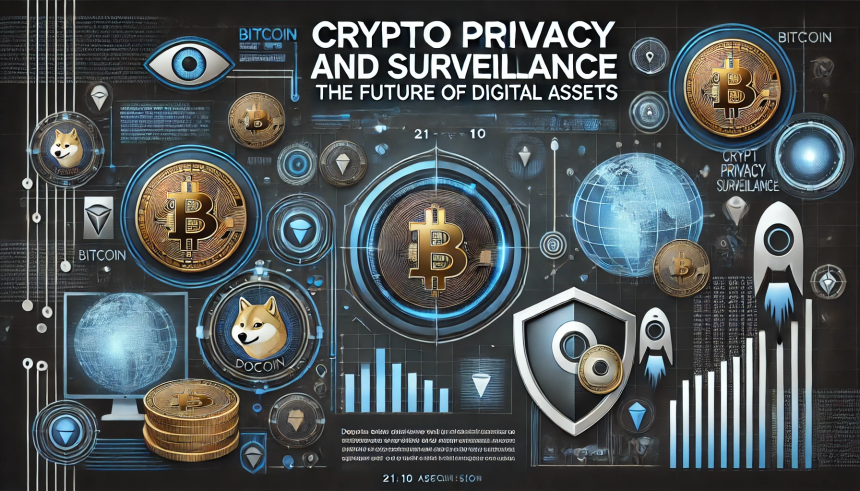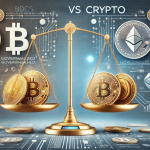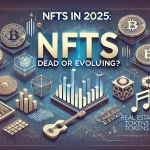Introduction
Elon Musk, one of the most influential tech leaders in the world, has recently made headlines with his visit to the United States National Security Agency (NSA). Although details of the meeting remain undisclosed, the crypto community is buzzing with speculation about what this interaction could mean for the future of cryptocurrency, blockchain privacy, and surveillance. Given Musk’s involvement with cryptocurrency, including Dogecoin and Bitcoin, and his public stance on free speech and decentralized technology, his meeting with a top intelligence agency is raising serious questions and debates.
Why Did Elon Musk Meet the NSA?
There is no official statement from either Musk or the NSA regarding the purpose of the meeting. However, several theories are circulating among experts and the media. One possibility is that Musk is collaborating with government agencies to discuss the national security implications of cryptocurrencies. With the growing use of Bitcoin and other digital assets in global finance, there is rising concern among governments about how these technologies can be used for illicit activities, including money laundering, ransomware, and even terrorism financing.
Another theory is that the NSA is seeking Musk’s input on blockchain technology and decentralized systems, particularly as they might relate to secure communications, encrypted networks, or quantum-resistant cryptography. Given Musk’s work in AI, neural networks, and advanced communication systems through companies like Tesla, SpaceX, and Neuralink, his insights could be valuable to national security initiatives.
Impact on Cryptocurrency Privacy
The meeting has sparked widespread concerns about potential government surveillance of cryptocurrency transactions. One of the main appeals of cryptocurrencies like Bitcoin, Monero, and Zcash is the promise of privacy and financial freedom. If the NSA and other intelligence agencies are looking to monitor blockchain transactions more closely, this could lead to new regulations that compromise the privacy of crypto users.
Many privacy advocates worry that collaborations between tech moguls and government agencies could lead to backdoors being implemented in crypto protocols, undermining the decentralized nature of these networks. If this happens, it could change how cryptocurrencies are used, making them less attractive for users who value anonymity.
Possible Collaboration on Crypto Security
On the other hand, some experts argue that a collaboration between Musk and the NSA could lead to positive outcomes for cryptocurrency security. One scenario is that they are exploring ways to protect blockchain systems from growing cybersecurity threats, such as quantum computing attacks that could break current cryptographic standards. With Musk’s access to cutting-edge AI and quantum research, working with the NSA might focus on creating more secure, future-proof blockchain protocols. This could help protect user funds and ensure the long-term viability of cryptocurrencies against advanced hacking attempts. If this is the goal, it may result in stronger encryption methods and better decentralized security tools for the crypto industry.
Implications for Dogecoin and Bitcoin
Given Musk’s influence on Dogecoin and previous support for Bitcoin, many speculate whether these assets were part of the discussion. Musk has used his social media presence to boost Dogecoin’s popularity, often calling it “the people’s crypto.” If the NSA is interested in how widely adopted coins like Dogecoin and Bitcoin impact the financial system or national security, Musk’s insights would be valuable. It is also possible that government agencies are considering working with large crypto networks to implement security features or compliance mechanisms, such as improved transaction tracking for law enforcement purposes. This could affect how Dogecoin and Bitcoin evolve in the coming years, particularly if regulatory bodies start demanding more control over public blockchain networks.
Government Surveillance and Decentralized Finance (DeFi)
The potential for government surveillance in crypto markets is a significant concern for decentralized finance (DeFi). DeFi protocols rely on open, permissionless networks where users can trade, lend, and borrow without intermediaries. If the NSA begins to influence how these networks are monitored, it could undermine the core principles of DeFi. Musk’s involvement might suggest a future where governments demand visibility into DeFi transactions to prevent criminal activities, but this could also scare away users who value privacy. As a result, DeFi projects may need to adapt by creating new privacy-focused tools or face increased regulatory scrutiny.
The Role of Artificial Intelligence in Crypto Surveillance
Musk’s leadership in AI through companies like xAI and Tesla may also indicate that artificial intelligence could play a role in monitoring crypto transactions. AI algorithms are already being used by blockchain analytics firms to detect suspicious activities. With government backing and AI advancements, surveillance could become even more powerful and pervasive. AI could analyze transaction patterns, identify wallet ownership, and flag potential illegal activities more efficiently than current systems. While this could help prevent crimes like money laundering and fraud, it raises serious ethical concerns about financial privacy. Crypto users may see AI-based monitoring as an infringement on their right to conduct private transactions without government oversight.
Market Reactions to Musk’s NSA Meeting
Following the news of Musk’s visit to the NSA, the crypto market experienced mixed reactions. Bitcoin and Dogecoin saw slight volatility, as investors speculated about potential regulatory outcomes. Privacy-focused coins like Monero and Zcash saw increased interest, as traders anticipated a possible crackdown on public blockchains. Exchanges and DeFi platforms are also watching the developments closely, as any new regulatory demands could affect their operations. If the U.S. government introduces stricter surveillance requirements, exchanges might need to adopt more aggressive KYC/AML procedures, impacting user onboarding and privacy.
Future Outlook for Crypto Privacy and Security
The meeting between Musk and the NSA marks a possible turning point for how cryptocurrency is viewed by governments. If the focus is on collaboration for better security, we may see advancements in blockchain technology that benefit the entire industry. However, if the meeting signals a move toward increased surveillance and control, it could dampen the appeal of crypto for privacy-minded users. Crypto developers and communities may respond by doubling down on privacy innovations, such as zero-knowledge proofs, decentralized mixers, and peer-to-peer exchanges that do not rely on centralized platforms. Ultimately, the direction this takes will depend on how transparent Musk and the NSA are about the nature of their discussions.
Conclusion
Elon Musk’s meeting with the NSA has opened a floodgate of speculation and concern in the crypto world. Whether it leads to stronger crypto security or greater surveillance remains to be seen. For now, the crypto community must remain vigilant, advocating for transparency and maintaining the foundational principles of decentralization and privacy. Investors, developers, and users alike should prepare for potential shifts in the regulatory landscape and continue to support technologies that prioritize security and user rights. The outcome of this interaction between one of the world’s most powerful tech figures and one of the most secretive agencies could have lasting effects on the future of cryptocurrency.










